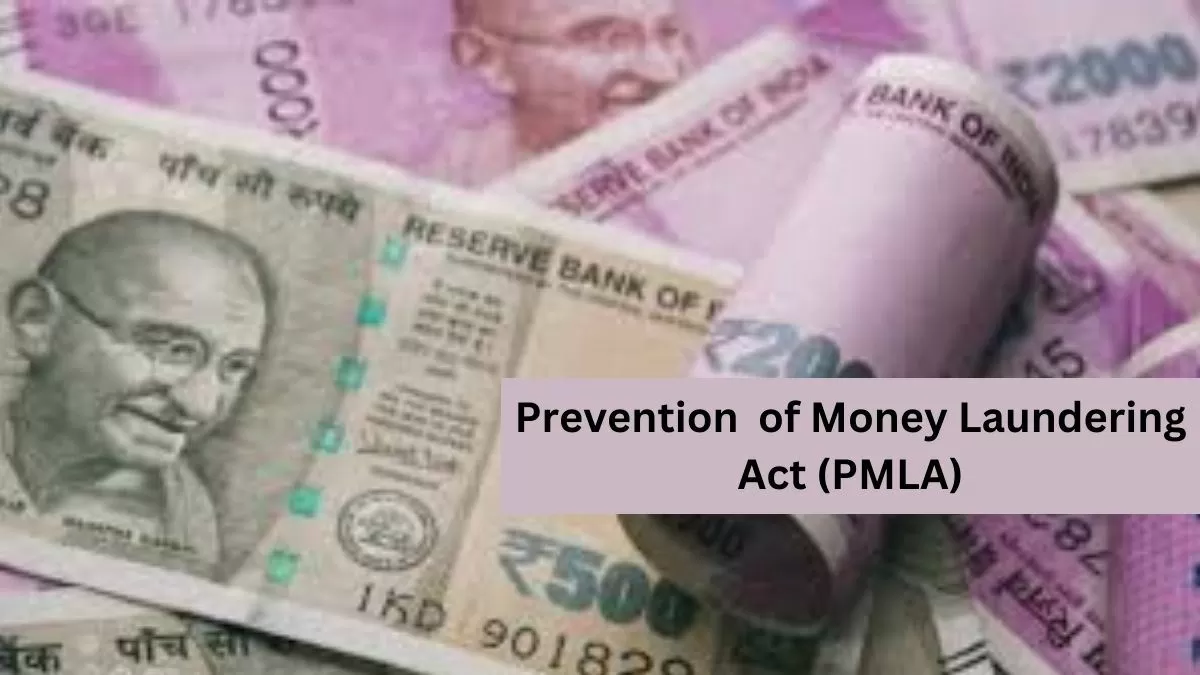

Prevention of Money Laundering Act
The Prevention of Money Laundering Act, 2002 (PMLA), passed by the NDA administration, aims to combat money laundering. It came into effect on July 1, 2005, with the Rules issued under the Act. This Act plays a crucial role in fighting money laundering and allows for the seizure of properties involved in such illegal activities.
The Act defines "reporting entities" and requires them to authenticate the identities of their clients and beneficial owners, keep records, and provide information to the Financial Intelligence Unit - India (FIU-IND).
Furthermore, the Act authorizes authorities to request data from reporting businesses and take necessary steps to prevent money laundering for each defined transaction made by a customer. The Act also imposes severe penalties for noncompliance and nonpayment of fines.
The PMLA's main purpose is to prevent and control money laundering in India. It seeks to confiscate or seize any property that originates from or is implicated in money laundering. The Act allows specified authorities to take stern action against persons or businesses engaged in unlawful financial transactions.
The PMLA focuses on the duties of reporting entities. The Act requires organizations to keep detailed records of all transactions, verify customer identities, and conduct enhanced due diligence methods.
The Act mandates reporting entities to verify the identity of clients, maintain comprehensive transaction records, and furnish information to the Financial Intelligence Unit - India (FIU-IND).
The Act defines "reporting entities" and requires them to authenticate the identities of their clients and beneficial owners, keep records, and provide information to the Financial Intelligence Unit - India (FIU-IND).
The Act empowers authorities to request data from reporting businesses and take necessary steps to prevent money laundering for each defined transaction made by a customer. The Act also imposes severe penalties for noncompliance and nonpayment of fines.
It establishes systems for tracing and controlling the flow of illegal cash resulting from criminal acts such as drug trafficking, terrorism financing, and corruption. The Act's provisions cover the seizure of property resulting from such illicit transactions, as well as the prosecution of those involved in money laundering.
Moreover, the PMLA emphasizes the need for international cooperation in combating money laundering. It aligns with global initiatives and agreements such as the Vienna Convention, the founding of the Financial Action Task Force (FATF), and the UN Convention against Transnational Organized Crime based in Palermo.
These international frameworks highlight the necessity for governments to collaborate in preventing the laundering of proceeds from illegal operations across borders.
The Act provides several authorities represented by the Director, Deputy Director, Assistant Director, and other officials with broad authority to summon persons, produce data, and conduct detailed investigations.
This enforcement structure plays a vital role in the strict implementation of the Act and reinforces the government's resolve to combat unlawful financial activity.
The Act gives specific authorities the power to share information if they believe it is in the public's best interests. These regulations aim to increase control and collaboration with other reporting entities, authorities, and associated agencies such as tax authorities, thus boosting India's anti-financial crime operations.
In simple terms, the Prevention of Money Laundering Act of 2002 serves as a powerful legal tool in India's efforts to prevent and discourage illicit financial activity. By placing severe regulatory responsibilities on reporting organizations and providing authorities with extensive powers, the Act greatly contributes to the integrity of the Indian financial system and the country's financial stability.
Get here current GK and GK quiz questions in English and Hindi for India, World, Sports and Competitive exam preparation. Download the Jagran Josh Current Affairs App.